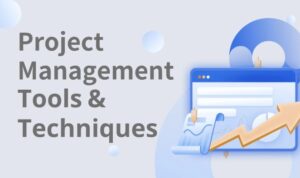Building a Marketing Budget is like crafting a blueprint for your business’s success. It’s all about making smart decisions on where to allocate your resources to maximize impact and growth. Let’s dive into the nitty-gritty details of creating a solid marketing budget that sets your business up for success.
Importance of Building a Marketing Budget

Having a well-structured marketing budget is crucial for business success as it allows companies to allocate resources effectively, plan marketing campaigns, and measure the return on investment. Without a clear budget in place, businesses may overspend on marketing efforts that do not yield results or fail to invest enough in strategies that could drive growth.
Effective Planning and Allocation of Resources
A marketing budget helps in planning and allocating resources effectively by setting clear guidelines on how much can be spent on different marketing channels such as social media, advertising, or content creation. By outlining specific budgets for each area, businesses can ensure that resources are distributed strategically to maximize impact.
- By having a set budget for social media advertising, companies can track spending and measure the effectiveness of campaigns in reaching the target audience.
- Allocating a specific amount for content creation allows businesses to invest in high-quality materials that engage customers and drive brand awareness.
- Setting aside funds for email marketing campaigns helps in nurturing leads and driving conversions, with a clear measure of the return on investment.
Impact on Overall Marketing Strategy
A marketing budget can impact the overall marketing strategy by influencing decisions on which channels to prioritize, the frequency of campaigns, and the creative elements to include. It helps in aligning marketing efforts with business goals and ensures that resources are utilized efficiently to drive results.
“A well-defined marketing budget ensures that resources are allocated to activities that are most likely to generate a positive return on investment.”
Factors to Consider When Building a Marketing Budget
When creating a marketing budget, businesses need to take into account several key factors to ensure the effectiveness of their marketing strategies and campaigns.
Clear Objectives and Goals
Setting clear objectives and goals before allocating budget resources is crucial in guiding the direction of marketing efforts. By defining specific goals, businesses can better determine the resources needed to achieve them and measure the success of their marketing initiatives.
Market Research Influence, Building a Marketing Budget
Market research plays a vital role in influencing budget decisions and allocation. By conducting thorough market research, businesses can gain valuable insights into their target audience, competitors, industry trends, and consumer behavior. This information helps in making informed decisions about where to allocate budget resources for maximum impact and ROI.
Strategies for Allocating Marketing Budget: Building A Marketing Budget
When it comes to allocating a marketing budget, companies can choose from several different strategies based on their goals and resources. Here are some common approaches along with their pros and cons:
Percentage of Revenue
One popular method is to allocate a certain percentage of the company’s revenue towards marketing efforts. This approach ensures that marketing spending scales with business growth.
- Pros: Provides a clear guideline for budgeting, ensures a consistent investment in marketing.
- Cons: May not be flexible enough to adapt to changing market conditions, could lead to overspending during slow periods.
Objective-Based
Another approach is to allocate the marketing budget based on specific objectives or goals that the company wants to achieve. This method ties spending directly to desired outcomes.
- Pros: Ensures that marketing efforts are aligned with business objectives, allows for more strategic allocation of resources.
- Cons: Can be challenging to accurately predict the budget needed to achieve certain goals, may require ongoing adjustments.
Competitive Parity
Some companies choose to allocate their marketing budget based on what their competitors are spending. This strategy aims to ensure that a company remains competitive in the market.
- Pros: Helps prevent under-investment in marketing compared to competitors, provides a benchmark for spending decisions.
- Cons: Does not take into account the unique needs and opportunities of the company, could lead to over-investment in certain areas.
Examples of Successful Allocation
Companies like Apple and Nike have successfully allocated their marketing budgets by combining multiple strategies. Apple is known for investing heavily in innovative marketing campaigns tied to product launches, while Nike focuses on a mix of brand-building and performance marketing to reach their target audience.
Tools and Techniques for Managing a Marketing Budget

Effective management of a marketing budget is crucial for the success of any marketing campaign. Utilizing budgeting tools and software can streamline the process and ensure that resources are allocated efficiently.
Using Budgeting Tools and Software
Implementing budgeting tools and software can provide a centralized platform for tracking expenses, monitoring spending trends, and generating reports. These tools can help marketers stay organized and make informed decisions about where to allocate funds.
- Utilize software like QuickBooks or Excel to create detailed budgets and track expenses in real-time.
- Consider using online budgeting tools such as Mint or YNAB for enhanced budget management capabilities.
- Explore marketing-specific software like HubSpot or Marketo for comprehensive budget tracking and analysis.
Tracking and Analyzing Marketing Expenses
Tracking and analyzing marketing expenses are essential for staying within the allocated budget and optimizing spending for maximum ROI.
- Regularly review expenses to identify any areas of overspending or inefficiencies.
- Compare actual expenses to the budgeted amounts to assess performance and make adjustments as needed.
- Use tools like Google Analytics or social media insights to track the performance of marketing campaigns and determine their impact on the budget.
Adjusting and Optimizing the Marketing Budget
Flexibility is key when managing a marketing budget, as adjustments may need to be made based on performance data and analytics.
- Allocate more resources to high-performing campaigns and reallocate funds from underperforming initiatives.
- Consider seasonal trends and consumer behavior when optimizing the budget for maximum impact.
- Regularly review and analyze performance data to make informed decisions about budget adjustments for future campaigns.





